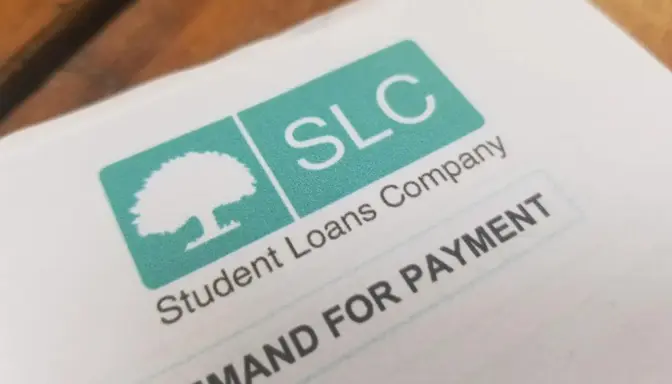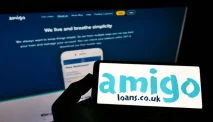Diksia.com - If you are a student in the UK, you may have heard of the Student Loans Company (SLC), the organisation that provides loans and grants to help you pay for your education. But what exactly is the SLC, how does it work, and what are your rights and responsibilities as a borrower? In this article, we will answer these questions and more, so you can make informed decisions about your student finance.
What is the SLC?
The SLC is an executive non-departmental public body company that is owned by the UK Government’s Department for Education (85%), the Scottish Government (5%), the Welsh Government (5%) and the Northern Ireland Executive (5%). It was established in 1989 to administer loans and grants to students in colleges and universities in the UK.
The SLC works with the relevant government departments and agencies in each country to deliver student finance according to the policies and regulations set by them. The SLC also works with universities and colleges to verify students’ enrolment and attendance, and to collect and process data on student withdrawals and changes of circumstances.
The SLC’s main functions are to:
- assess students’ eligibility for loans and grants
- pay loans and grants to students and their education providers
- collect loan repayments from borrowers
- provide information and guidance to students, parents, and sponsors
- manage the student loan debt and recover overpayments
How does the SLC operate?
The SLC operates through various online and offline channels, such as:
- the SLC website, where you can find information about student finance, apply for loans and grants, sign in to your account, make payments, and contact the SLC
- the Student Finance England (SFE), Student Finance Wales (SFW), Student Finance Northern Ireland (SFNI), and Student Awards Agency Scotland (SAAS) websites, where you can access specific information and services for your country
- the SLC phone lines, where you can speak to a customer service representative or use the automated service to check your balance, make a payment, or update your details
- the SLC social media accounts, where you can follow the latest news and updates, and get tips and advice on student finance
- the SLC email and postal services, where you can receive letters and emails from the SLC, and send documents and forms to the SLC
The SLC also has a number of partners and stakeholders, such as:
- the Department for Education, the Scottish Government, the Welsh Government, and the Northern Ireland Executive, which set the policies and regulations for student finance in their respective countries
- the Office for Students, the Scottish Funding Council, the Higher Education Funding Council for Wales, and the Department for the Economy, which regulate and fund higher education providers in their respective countries
- the HM Revenue and Customs (HMRC), which collects student loan repayments from borrowers through the tax system
- the UK Research and Innovation (UKRI), which provides loans and grants for postgraduate research students
- the Education and Skills Funding Agency (ESFA), which provides loans and grants for further education students in England
- the universities and colleges, which verify students’ enrolment and attendance, and provide information and support to students on student finance matters
What are the types of loans and grants offered by the SLC?
The SLC offers different types of loans and grants to students, depending on their level of study, their country of residence, and their personal circumstances. The main types of loans and grants are:
- Tuition Fee Loans, which cover the cost of your tuition fees at your university or college
- Maintenance Loans, which help with your living costs while you study
- Grants and Bursaries, which are extra money that you do not have to pay back, and are usually based on your household income, disability, or other factors
- Postgraduate Loans, which are available for some master’s and doctoral courses
- Advanced Learner Loans, which are available for some further education courses in England
The amount of money you can get from each type of loan or grant depends on various factors, such as:
- the course you are studying and the duration of your course
- the tuition fee charged by your university or college
- the country where you normally live and where you are studying
- your household income and your own income
- your marital status and whether you have any dependents
- your age and previous qualifications
- your nationality and residency status
You can use the online calculators on the SLC website or the relevant government website to get an estimate of how much money you can get from each type of loan or grant.
How do you apply for loans and grants from the SLC?
To apply for loans and grants from the SLC, you need to follow these steps:
- Check your eligibility for student finance, based on your level of study, your country of residence, and your personal circumstances
- Register for an online account on the SLC website or the relevant government website, and fill in an online application form with your personal details, course details, and financial details
- Provide any evidence or documents that are required to support your application, such as your passport, birth certificate, bank statements, or proof of income
- Sign and return the declaration form that confirms your agreement to the terms and conditions of your loans and grants
- Wait for the SLC to process your application and send you a confirmation letter that shows how much money you are entitled to receive from each type of loan or grant
You should apply for student finance as early as possible, preferably before the deadline for your country, to ensure that you receive your money on time. You can apply for student finance up to nine months after the start of your course, but you may not receive your full entitlement if you apply late.
You can also update or change your application at any time, if your circumstances change, such as your course, your university or college, your household income, or your personal details. You should notify the SLC as soon as possible, and provide any evidence or documents that are required to support your changes.
How do you receive and manage your loans and grants from the SLC?
To receive and manage your loans and grants from the SLC, you need to follow these steps:
- Register with your university or college, and confirm your attendance and enrolment at the start of each term
- Wait for the SLC to pay your Tuition Fee Loan directly to your university or college, and your Maintenance Loan and any grants or bursaries directly to your bank account, at the start of each term
- Sign in to your online account on the SLC website or the relevant government website, and check your balance, payments, interest, and statements
- Keep your contact details and bank details up to date, and inform the SLC of any changes to your circumstances, such as your course, your university or college, your income, or your personal details
- Contact the SLC if you have any questions or problems with your loans and grants, or if you need any information or guidance on student finance
You should also keep track of your spending and budgeting, and make sure that you have enough money to cover your living costs and other expenses while you study. You can use the online tools and resources on the SLC website or the relevant government website to help you plan and manage your money.
How do you repay your loans and grants from the SLC?
To repay your loans and grants from the SLC, you need to follow these steps:
- Check your repayment plan, which determines how much you repay, when you repay, and how you repay
- Start repaying your loans when you finish or leave your course, and when your income is above the repayment threshold for your repayment plan
- Repay your loans through the tax system, if you are employed in the UK, or directly to the SLC, if you are self-employed, work overseas, or want to make extra payments
- Check your repayments, balance, and interest on your online account, and keep your contact details and income details up to date
- Contact the SLC if you have any questions or problems with your repayments, or if you need any information or guidance on student finance
You should also be aware of your rights and responsibilities as a borrower, such as:
- You only repay what you owe, and any interest and charges that are applied to your loans
- You can repay your loans early, in full or in part, without any penalties or fees
- You can apply for a refund, if you have overpaid your loans or paid when you did not have to
- You can apply for a cancellation, deferment, or suspension of your repayments, if you meet certain criteria, such as disability, illness, or low income
- You can complain or appeal, if you are unhappy with the service or decision of the SLC or its partners
The Student Loans Company is a vital organisation that helps millions of students in the UK to access and afford higher and further education. Whether you are a prospective, current, or former student, you should know how the SLC works, and how it can help you with your student finance.
We hope this article has given you a comprehensive overview of the SLC, and answered some of the common questions you may have. For more information, you can visit the SLC website or the relevant government website, or contact the SLC directly. Remember, the SLC is here to support you throughout your educational journey.






